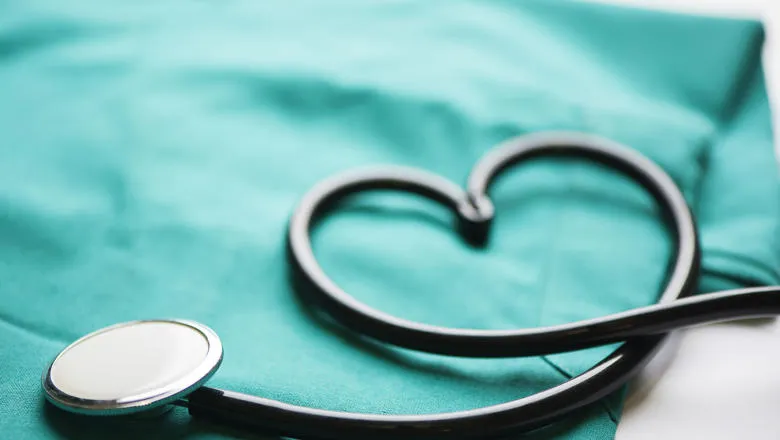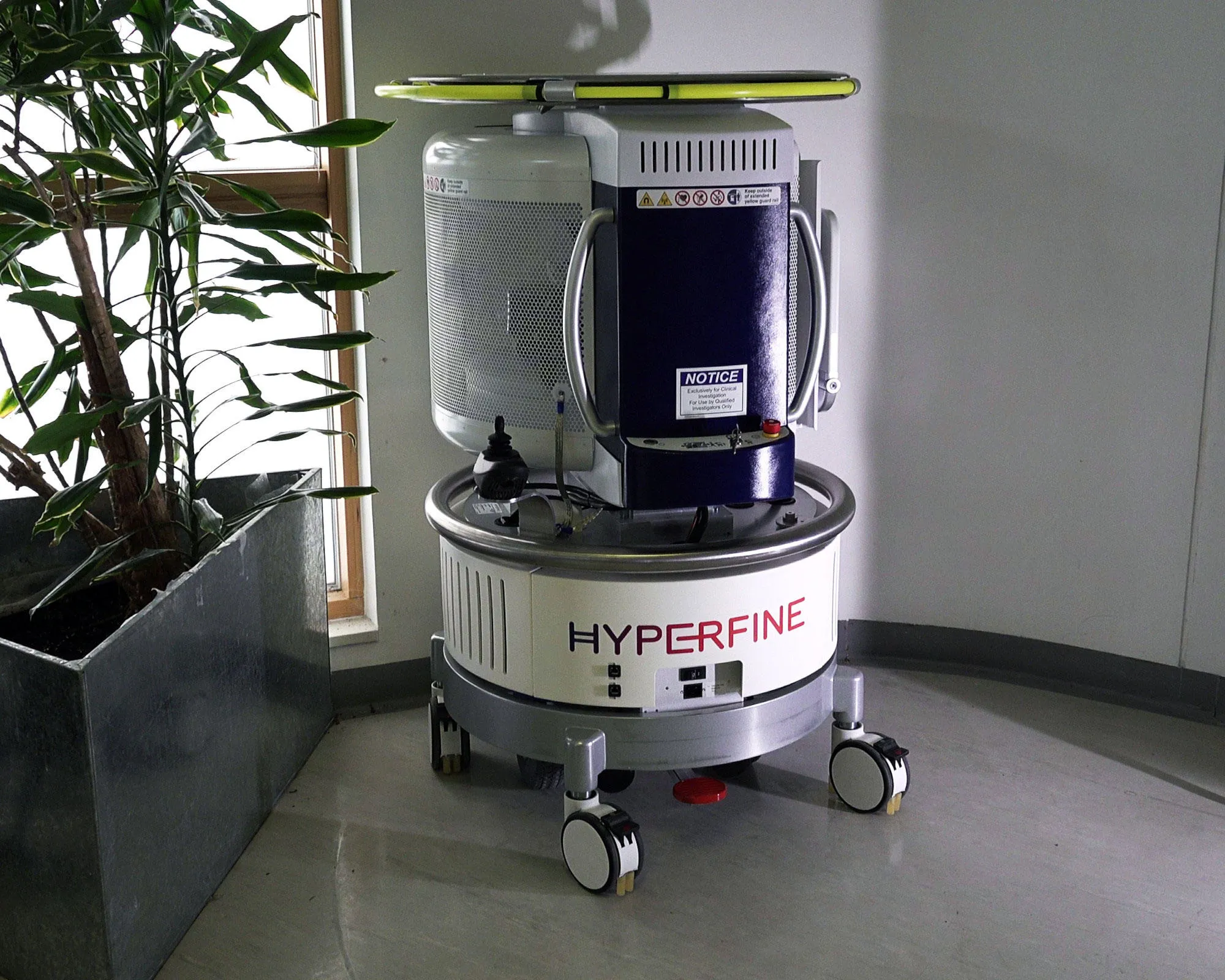This cross-faculty, cross-campus project has everyone excited about the potential to truly transform the care of young children. Making brain imaging easier and more affordable will allow us to reach more patients in more settings globally.
Principal Investigator Steve Williams, Head of Department of Neuroimaging at the Centre for Neuroimaging Sciences, King's College London
16 June 2021
Europe's first 'game-changing' portable MRI machine arrives at King's Health Partners
This programme, led by King’s Health Partners and funded by the Bill & Melinda Gates Foundation, involves the assessment of brain health and potential treatments across 20 sites around the world

King’s Health Partners welcomes the first portable, point of care MRI device in Europe.
The machine, Swoop™, developed by biotech company Hyperfine, has been delivered to King’s College London’s Centre for Neuroimaging Sciences and the Newborn Imaging Centre at the Evelina London Children’s Hospital.
This cutting-edge technology has the potential to vastly improve care, offering accessible and affordable brain imaging that can take place at the patient’s bedside. This achievement allows the technology to be used in a much wider variety of healthcare settings than conventional MRI system and, as a result, unearths new clinical opportunities.

Researchers from King’s College London Institute of Psychiatry, Psychology & Neuroscience (IoPPN) and the School of Biomedical Engineering & Imaging Sciences, will work with Hyperfine to further develop and optimise the new MRI device for brain assessment in young people.
This programme, led by King’s Health Partners and funded by the Bill & Melinda Gates Foundation, involves the assessment of brain health and potential treatments across 20 sites around the world including: South Africa, Uganda, Pakistan, Malawi, India, Ethiopia, Ghana and Zambia.
As part of this exciting collaboration the team is partnering with PATH a global non-profit organization dedicated to ending health inequity by development and scale up of innovative health solutions.
PATH will facilitate the regulatory and import applications of the devices across several continents.
This machine can be brought to the patient’s bedside to collect detailed images of the brain. This takes away many of the usual constraints imposed by fixed, conventional MRI scanning, such as dedicated, bespoke rooms, complex power and cooling requirements as well as extensive operator training.
This has significant implications for clinical care as it means ill patients will not need to be moved from intensive or emergency care for an MRI scan. There is also potential for use in lower resource environments or outside of hospital settings.
The scanner has come to the neonatal intensive care unit because of our specialist facilities expertise, and our first work with Hyperfine will be to study brain problems in the newborn infant. We then aim to work with older children in paediatric intensive care, another area where portable MRI could be game-changing.
David Edwards, Professor of Paediatrics and Neonatal Medicine, School of Biomedical Engineering & Imaging Sciences, King’s College London
It has been amazing to experience receiving and setting up the Hyperfine Swoop™ MRI system. It is a truly modern product that came in a box, was driven under its own power to our clinical area and was set up in an afternoon. Although initially designed for adult brain imaging, there is clear potential for it to be developed into a powerful means to examine the brains of babies. This will be new, fresh and information rich. I am excited to be part of the research team that will make this possible.
Jo Hajnal, Professor Imaging Science, School of Biomedical Engineering & Imaging Sciences, King’s College London
With the high calibre research capacity across King’s Health Partners, the continued development of the Hyperfine system can transform brain imaging not only here in the UK, but importantly also in lower income countries where access to standard MR imaging infrastructure is limited.
Professor Seb Ourselin, Head of School of Biomedical Engineering & Imaging Sciences, King’s College London
The Hyperfine system is a fabulous example of how collaboration between disciplines and across industry, academia and the NHS can bring about innovation, making MRI accessible in low and middle-income countries and impacting care across the world. As part of the global programme, the team will address specific challenges in ultra-low field neonatal MR imaging, creating high quality diagnostic data, motion insensitive images, silent scans and maps of brain maturation. A range of protocols to help address birth complications, infection and malnutrition will also be developed and shared internationally.
Professor Matthew Hotopf, Director NIHR Maudsley Biomedical Research Centre
Our Imaging and Biomedical Engineering Clinical Academic Group (CAG) provides comprehensive imaging facilities across one of the largest set ups of its kind in Europe.





